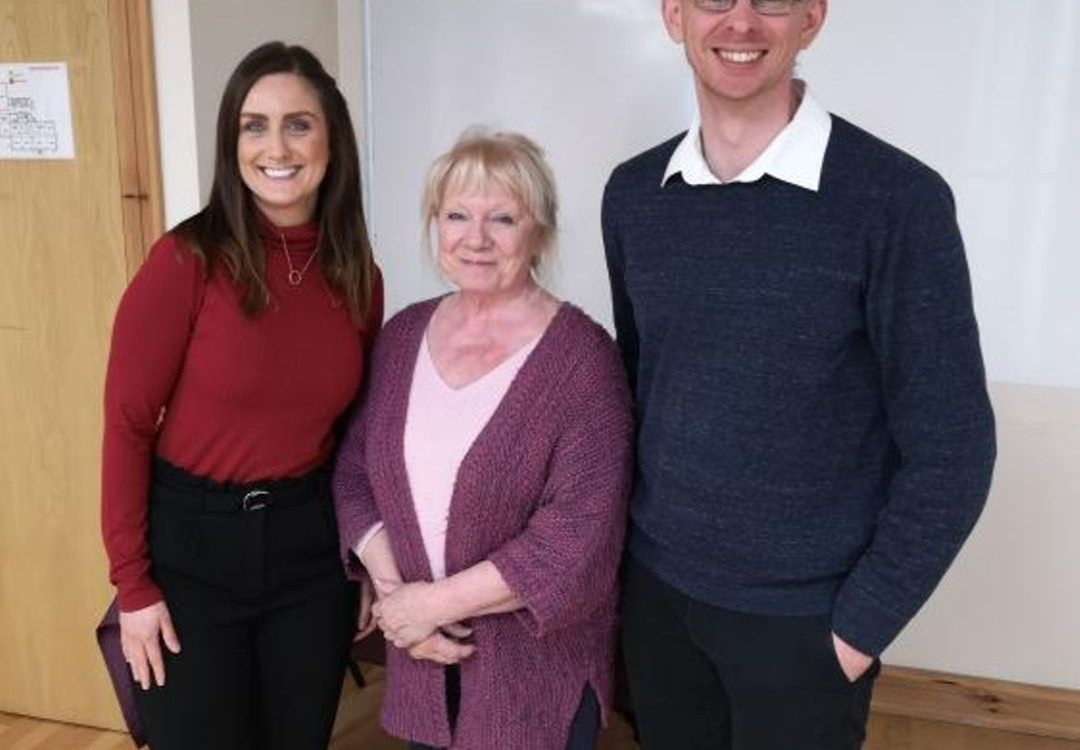
The Mindfulness Tree, Tips on Living More in the Present
At her recent talk on Mindfulness as part of Limerick Mental Health Week Christine discussed the mindfulness tree and the key elements of it that you can apply to your daily life. She also gave advice on a few exercises you can practice to help you live more in the moment.
The Mindfulness Tree

Acceptance – This is often the most difficult one to accept and that is exactly the one the vast majority of other therapies are missing. The poem below is a great summary of what acceptance means. People will suffer, there is also joy. It’s easy to accept joy, we will come across sorrows in our life so it’s important to accept this. While some may call this surrendering this isn’t the case. Think of it like the flu, you have a choice:
- You can either sit there and think woe is me I shouldn’t be here I should be at work, college etc I’m so miserable. This won’t do anything for you.
- Or you accept it, you have the flu now what are you going to do about it. How can I make sure I’m getting better. That’s what acceptance is.
It’s important for people to accept what fate gives us. Everyone has their stories, all of these things had to happen for us to be here and now. They make us the people that we are and the person that others are friends with. With acceptance comes peace.
Trust – This is the first thing to develop when a baby is small. It has to learn to trust its environment, within trust there is no safety. Without trust resentment, anger and depression will come to the surface. There’s so much that can happen if we do not trust. We have to be able to trust ourselves, think of the voices in your head and the way you talk to yourself in your mind. Trust is a really, really big area.
Non-Striving – Yes goals are important but sometimes we want things so badly on the outcomes that we overlook the process. This often happens in couples therapy. They focus on staying together no matter the cost, they lose sight on how to live their lives together. If they don’t put their energy into the present moment then it’s not going to happen. Things need to take on their own life so this is where not striving comes into play.
Kindness – It’s easy to be kind to our pet or to others but what about being kind to ourselves. There’s that voice of doubt in our heads that can stop us doing this. This is very often what is lacking as we will look to do this for others and not for ourselves.
Beginners Mind – Sometimes we think we are such experts yet it can be very beneficial to look at things from a more open mindset. We are willing to take a bit more insecurity and not be the expert all the time.
Non-judging – People tend to have an opinion on everything, is it a good or bad experience? If we can live more in the moment and not judge as much then this can be a good approach to take.
Curiosity – As we grow older this is something that we lose. We become conditioned and are into the experience of being set in our routines. We often aren’t curious anymore about what would happen if we took a step outside of these.
Patience – We have to train and practice when it comes to patience. How do we do this? Next time you’re in the supermarket go to the longest queue rather than the smallest one and practice it here. We have to train ourselves to be patient as often rushing or not having patience can lead to awkward situations.
Letting go – This is a really big, when things get their hooks into us we don’t let it go. Be it thoughts feelings behaviours. We don’t found a way to put these down and finally let go of the past. This is one of the most difficult ones to work on.
Practicing this Everday and Being in the Moment
If we practice these in everyday life then the tree will strengthen and mature. If we live in the present moment and with mindfulness practice, all these qualities will be found in the roots. We will have internalised them and will be able to live our lives much freer. These can be combined with breathing & meditation on a daily basis to help apply these.























